Central African Republic
His features betray his youth, his gestures, and his anxiety. Camille's deep gaze stares at her fingers constantly tweaking the hem of her dress.At the end of September, a few weeks before her return to fourth grade, her cousin raped her.
In the Central African Republic, the second least developed country in the world according to the UN and in the grip of a civil war since 2013, sexual violence against women, children, and even men "is constantly increasing", according to the international NGO Doctors.
While many are the victims of rebels, soldiers, or other security forces, MSF estimates that half know their attackers. But the repression of sexual crimes is a social taboo and comes up against the inertia of justice.
Out of sight, in a discreet alley in the capital Bangui, the Tongolo center ( "Star" in the Sango language), created and managed by MSF since 2017, welcomes and takes care of victims.
For the past six years, some 80 people have worked in this establishment, which offers free medical and psychological care and other consultations. Tongolo also seeks accommodation solutions, and reintegration assistance and offers a legal follow-up to complaints.
In the green setting of the site, Camille* tries to put words to her trauma. “I was in a room with my brothers and sisters (…) My cousin came in and asked everyone to leave,” she says lip service.
“Once the door closed, he clapped his hand over my mouth,” she says, imitating the gesture, adding, in a barely audible voice: “I wanted to shout to stir up the whole neighborhood, but he m 'prevented'.
The Tongolo project, led by Thomas Gaudriot, identified more than 3,420 victims of sexual violence between January and November 2022. Of which "50% were attacked by a member of their entourage", notes Mr. Gaudriot, specifying that in this half, "more than a quarter are minors and 10% are men".
But "this is only the tip of the iceberg", fears the head of the center, faced with the difficulty of collecting precise and complete data across the country.
Walled in silence and terrified at the idea of being rejected or punished by those close to her, Camille will be raped again by her cousin. "Then I realized that if I didn't talk, he would continue," she says.
The cousin's parents hold her responsible for the aggression in a society that perceives rape victims as "guilty and dishonored", Camille regrets. "My aunt scolded me and forced me to take a pregnancy test. I was pregnant," she says.
A few days later, she goes to the center to have an abortion. "The medical staff understood that it was not my fault and the midwife who welcomed me did me a lot of good, I was able to confide in myself. Without her, I might not have never told anyone", explains Camille.
In most cases "the victim does not come to say what she has suffered but to have an abortion (...) she is always held responsible by one or more members of her family or neighborhood", deplores Sylvie Gonekra, a midwife in Tongolo for six years.
If the scourge of sexual violence is not directly linked to the civil war, which has decreased in intensity for four years, "the conflict has increased the precariousness which favors, among other things, these crimes", estimates Thomas Gaudriot.
But "very often rape becomes an indecent assault judged in corrections", regrets Magalie Besse, director of the Francophone Institute for Justice and Democracy Louis Joinet (IFJD), denouncing a "patriarchal approach to justice".
However, "the Central African penal code has a classic definition of rape (sexual penetration without consent, editor's note) but for many actors in the penal chain, if the victim is over 15 years old and was not a virgin at the time of the events, it was not violated," explains the head of this NGO specializing in justice and reconciliation processes in countries in civil war or recovering from it.
Moreover, "the magistrates are very flexible with the accused, they will easily grant provisional release or decide on extenuating circumstances", she continues.
"Even the files of victims showing clear signs of sexual assault come to nothing, the perpetrator is much better protected than the victim, which dissuades him from filing a complaint", assures AFP a Central African lawyer undercover. of anonymity.
*Name has been changed.



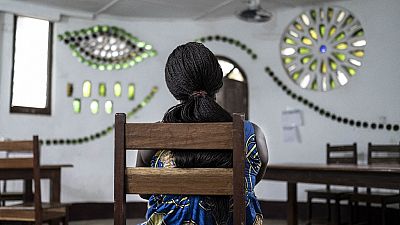

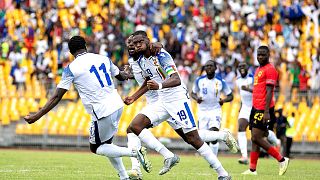

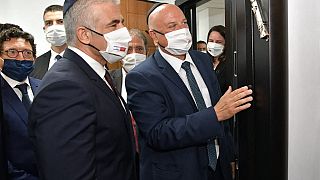
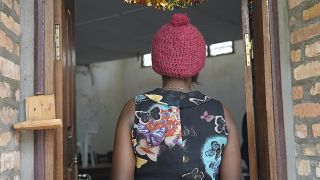

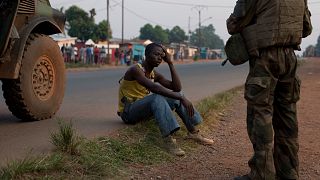

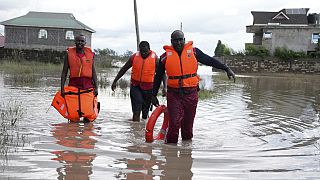

Go to video
A Nigerian schoolgirl abducted by extremists 10 years ago is rescued pregnant, with 3 kids
01:13
Sex offender register in the works in Ethiopia
02:25
Girls in Congo learning how to defend themselves through martial art
Go to video
Brazil: Former striker Robinho begins 9-year jail term for rape in rural penitentiary
Go to video
UN reports a 35% increase in people affected by violence in South Sudan
Go to video
In a global first, Gambia could reverse its ban on female genital cutting